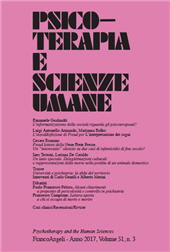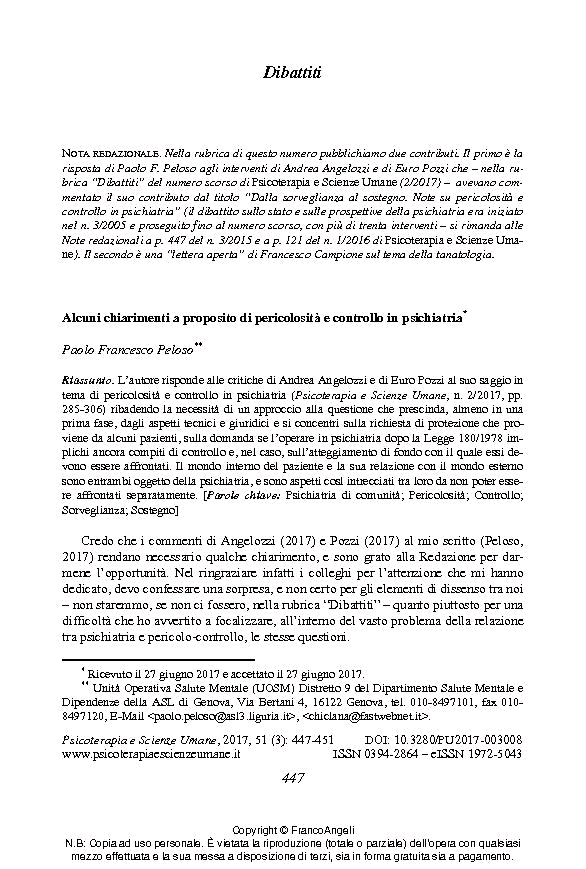Dibattiti : alcuni chiarimenti a proposito di pericolosità e controllo in psichiatria
447-451 p.
Le ragioni profonde della "rimozione della morte naturale" tendono nuovamente a imporsi. È necessaria la "mobilitazione culturale" di un pensiero creativo sulla morte che apra l'orizzonte al "colpo di genio" - così Nietzsche chiamava l'idea di Gesù per cui la morte è solo un sonno dal quale ci sveglieremo risorgendo - ormai necessario per non veder languire l'Umanità nella sua rinnovata impotenza verso la morte, o per trovare nuove vie per gestirla in un modo meno infantile di quello pur rispettosissimo consistente nel dominante cercare di non pensarci. L'alternativa consiste nel considerare la morte un mistero che trasforma tutte le nostre convinzioni e i nostri sentimenti in una "domanda", accompagnata non solo dalle emozioni classiche (paura, angoscia e desiderio di morte) ma anche dalla emozione - di cui parlava Emmanuel Lévinas - verso "non si sa cosa" del mistero della morte, l'emozione nell'ignoto. Una domanda che vola alto rispetto a tutte le altre risposte sulla morte. [Testo dell'editore].
The real causes of "repression of natural death" become once again relevant. It is necessary the "cultural mobilization" of a creative thinking on the issue of death which can promote the "stroke of genius" - as Nietzsche called Jesus' idea that death is only a kind of sleep from which we awake with resurrection - that is now necessary in order not to let mankind languish in its impotence toward death; it is also necessary to find new ways of dealing with death that are different from the usual - and childish, although understandable - habit of never thinking of our future death. The alternative is to consider death a mystery able to transform all our beliefs and feelings into a "question", accompanied not only by the typical emotions (fear, anxiety, death wish) but also by what Emmanuel Lévinas called the emotion towards "what we do not know" of the mystery of death, the emotion in the unknown. This question is on a much higher level than all other answers regarding death. [Publisher's Text].
Is part of
Psicoterapia e scienze umane : LI, 3, 2017-
Articles from the same issue (available individually)
-
Information
ISSN: 1972-5043
DISCIPLINES
KEYWORDS
- Psichiatria di comunità, Pericolosità, Controllo, Sorveglianza, Sostegno
- Community psychiatry, Dangerousness, Control, Surveillance, Sustain



